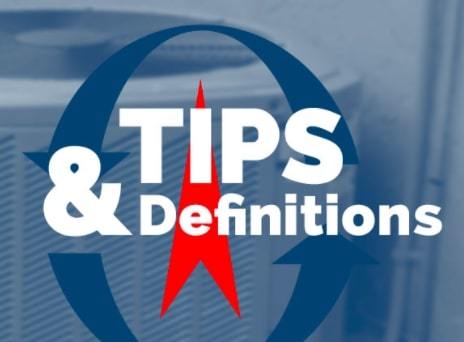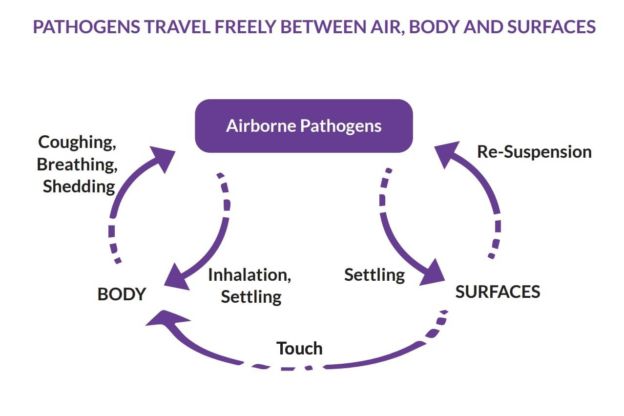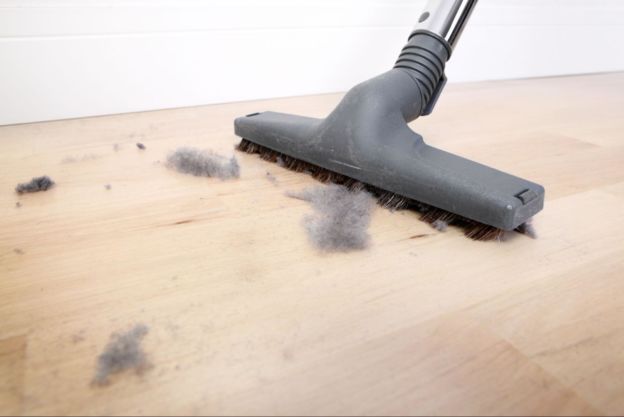Install an Air Purifier to Combat Summer Allergies
September 16, 2022

You might have heard that the best way to reduce allergies in Southwest Florida is by investing in a whole-home air purifier. An air purifier can filter out allergens and contaminants from your home’s air, making breathing easier and reducing the strain on those with respiratory conditions.
However, you might be wondering, “Do I need an air purifier when my AC system has a built-in filter?” While a standard fiberglass filter does a great job catching larger dust particles and contaminants, it can’t capture smaller allergens and pollutants like bacteria, mold spores, pet dander, dust mite debris, etc. All of these microcontaminants can affect the health of your household and your HVAC system. Meanwhile, a whole-home air purifier can reduce and eliminate the contaminants contributing to hay fever, pet dander, and seasonal allergies.
To determine which type of air purifier system is the best investment for your allergies and home, we’ll go into more detail about:
- The different types of air purifiers and how they work
- What allergens do these air purifiers take care of?
- What are the other benefits of air purifiers?
Get a Reliable Air Purifier Installation
Contact Advanced Air! We proudly provide thousands of Southwest Florida homeowners with trustworthy whole-home air purifier installations.
Schedule a same-day air purifier consultation with the experts at Advanced Air. Call us today at (888) 853-5143 or click the button below.
Different Types of Air Purifiers & How They Work

Allergens follow this cycle throughout your home. / Source
In general, air purifiers work by capturing pollutants and allergens and preventing them from circulating in your home’s air. However, the type of air purifier changes how they clean your air.
The three most common types of whole-home air purifiers are:
- High-MERV air filters
- Ionic (electronic) filters
- UV (germicidal) air purifiers
Below, we’ll break down how each type of air purifier works.
High-MERV (Media) Air Filters
A media air filter is a high-efficiency air filter that replaces the standard one installed within your HVAC system’s air handler. It works like a net, capturing airborne particles and preventing them from passing through the filter.
Any air filter with a high Minimum Efficiency Reporting Value (MERV) rating is considered “high efficiency,” as it can capture even the finest particles. However, filters with a 16+ MERV rating are the most effective at removing allergens from your home.
Ionic (Electronic) Air Cleaners
Ionic air cleaners have two components: a media filter to trap larger particles and an electronically charged metal layer for smaller contaminants. This layer puts an electrical charge on air particles that pass through your HVAC system, allowing minuscule particles to be “caught” by an aluminum collector plate inside the air purifier.
Unlike media air filters, these ionic air cleaners are reusable. They don’t need replacement every few months, saving you time and money.
UV (Germicidal) Air Purifiers
UV air purifiers have a UV-C lamp installed within your HVAC system that kills microbial contaminants. However, while they sterilize contaminants, they don’t remove these pollutants from circulating throughout your home’s air. Homeowners typically combine using a media air filter and a UV air purifier.
What Allergens Do These Air Purifiers Take Care Of?

Air purifiers can reduce the dust in your home.
Depending on the type of air purifier you install, it can reduce or sterilize different sizes of pollutants.
For example, high-MERV media air filters can catch small particles like:
- Pet dander
- Bacteria
- Tobacco smoke
- Mold spores
- Dust mites
Ionic air cleaners can catch biological contaminants such as:
- Mold
- Bacteria
- Pet dander
- Dust
- Pollen
UV light air purifiers sterilize these contaminants:
- Fungi
- Viruses
- Bacteria
- Odors
- Chemical toxins
- Mold spores
- VOCs
A unique reason to install a UV light air purifier is to eliminate any unpleasant odors in your home from cigarette smoke, cooking, chemical cleaning products, or unclean surfaces.
Based on your allergies and air purification needs, an air quality expert may recommend doubling up on two methods to sterilize and capture as many pollutants as possible in your home’s air.
What Are The Other Benefits of Air Purifiers?

Avoid paying for a new HVAC system before needed by installing an air purifier.
Whole-home air purifiers improve your indoor air quality and ease up your allergies by targeting pollutants. Beyond how air purifiers can benefit you, they can also benefit your HVAC system.
How?
HVAC systems naturally suck in all the debris, allergens, and dirt in your home’s air via air filters. However, these standard filters cannot capture every contaminant, allowing pollutants and dust to settle inside your HVAC system.
When too much dust and debris accumulate inside of your HVAC system, the clogs lead to:
- System breakdowns
- Reduced capacity
- Reduced lifespan
A whole-home air purifier can catch these contaminants before they enter your HVAC system. When you have a clean HVAC system, you save money on breakdowns, repairs, and having to replace your system before absolutely necessary.
Want a 5-Star Air Purifier Installation to Breathe Easier This Summer?
Contact Advanced Air to schedule an in-home estimate! We provide convenient same-day service. During your estimate, our air quality experts will provide you with recommendations on what type of whole-home air purifier you need based on your home’s pollutants, allergies, and budget.
Call us at (888) 853-5143 or click the button below to experience 5-star service!
- Posted in:
- Air Quality,
- Air Conditioning

